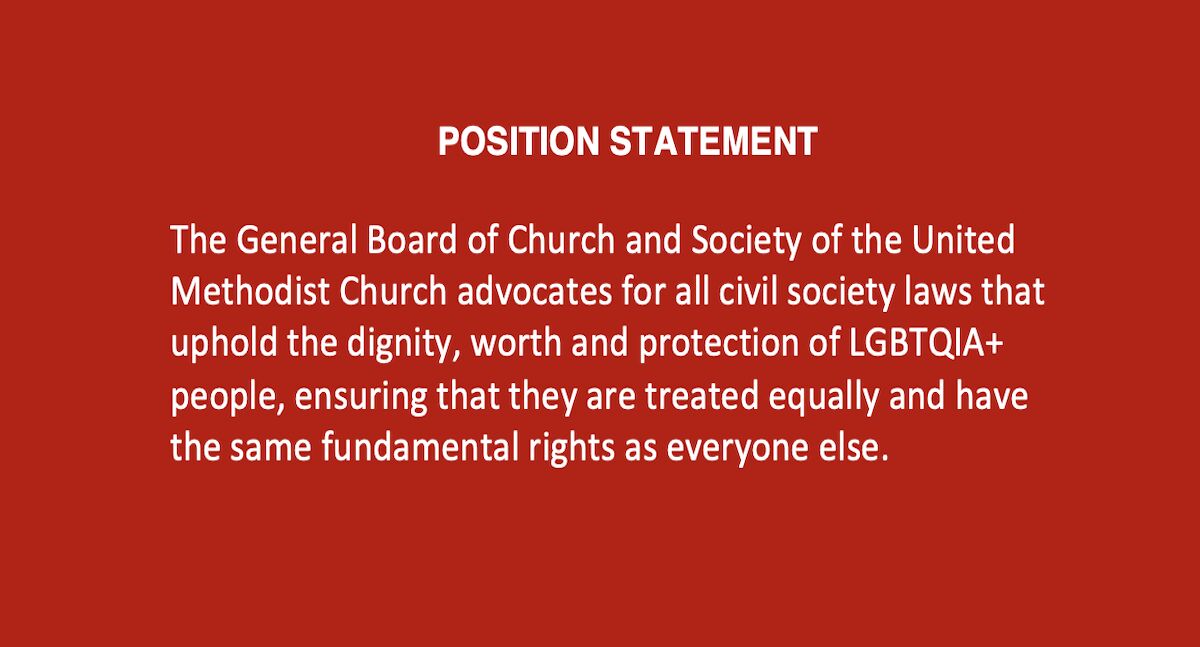LQBTQIA+ Human Rights
As United Methodists, we believe basic human rights, civil liberties and protections are due all persons regardless of sexual orientation or gender identity.

“Because all people are of sacred worth and certain basic human rights are due to everyone, we are committed to supporting the equal rights, liberties, and protections of all people, regardless of sexual orientation or gender identity.”(The United Methodist Church Social Principles, The Political Community, Basic Rights and Freedoms, I., Sexual Orientations and Gender Identities)
Background
Committed to creating spaces of justice, inclusion, and affirmation. The United Methodist Church marked a turning point at the 2024 General Conference, Charlotte, by removing the declaration of homosexuality as “incompatible with Christian teaching,” ending bans on LGBTQIA+ clergy and same-sex marriages.
Tragically, when it comes to LGBTQIA+ people, many communities have failed to guarantee basic human rights. Instead, all too often, under the pretense of religious beliefs or political interest, legislative actions have codified institutional discrimination and hate. This legislative assault is bolstered by Project 2025, an agenda from the incoming administration that threatens to strip away federal protections for LGBTQIA+ individuals, restrict gender-affirming care, eliminate inclusive educational content, and impose “traditional” family structures.
Furthermore, according to the United Nations, 76 countries criminalize same sex relationships and marriages, and in seven countries the penalty is death.
“We condemn all attempts to deny individuals their basic rights or freedoms or to strip human beings of their inherent dignity and worth. We. Therefore, reject within the church and wider society any act of discrimination, hatred or violence directed against individuals or groups based on gender identity or sexual orientation.” The United Methodist Church 2025 – 2028 Social Principles, The Political Community, Basic Rights and Freedoms)
Actions You Can Take
- Listen openly to the stories and experiences of LGBTQIA+ people whose lived experience is different than your own.
- Take a stand with local elected officials who attack marriage equality, adoption rights, and healthcare access.
- Advocate for laws protecting the dignity and rights of people of all sexual orientations and gender identities.
- Read Church and Society’s position statement on gender affirming care for youth.